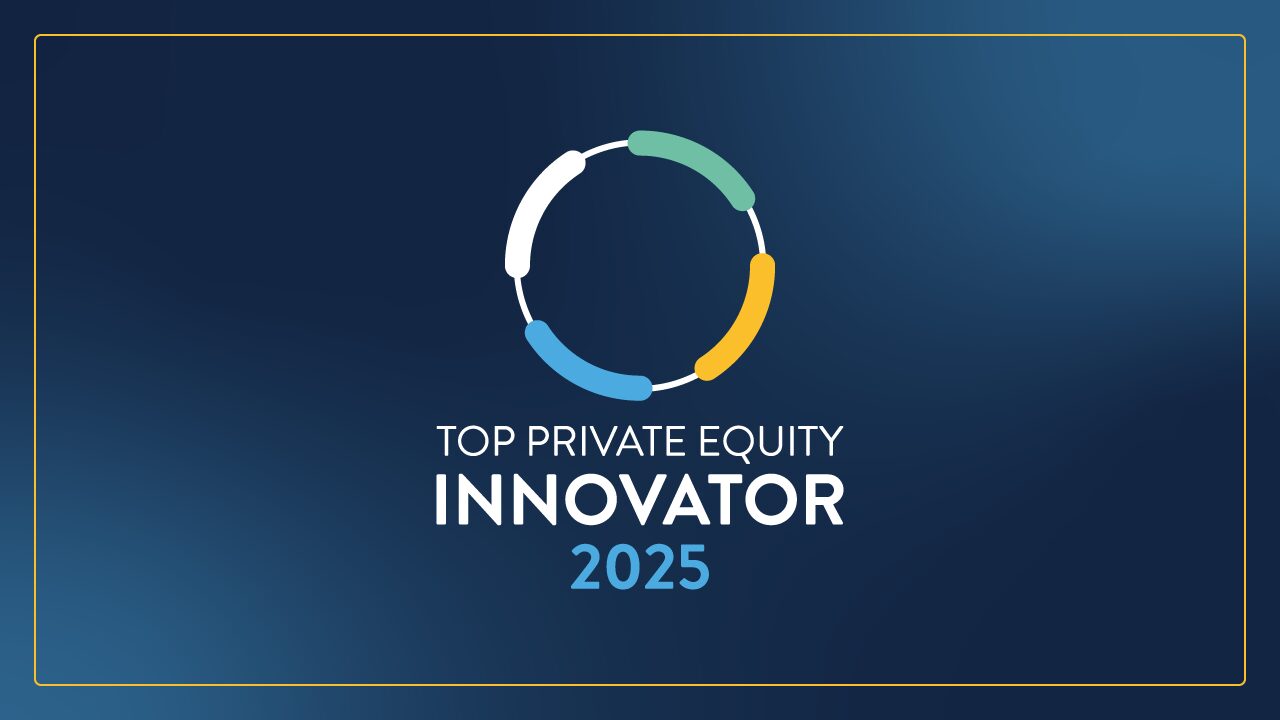Before assuming the position of President of Membership for the Family Office Exchange (FOX) three years ago, Glen W. Johnson spent a decade as one of its members. As the preeminent organization for “collaborative, peer-driven” family offices and trusted wealth-related advisors, Johnson has helped steer FOX through a pandemic, up the hill of its membership growth, and through the shifting tides of direct investments.
BluWave recently joined the FOX community as a partner to their direct investment council. I sat down with Mr. Johnson to learn more about how the organization is evolving to meet the needs of its existing and new members (many of which are the result of recent liquidity events), what trends they are seeing in the family office space, and how the current purpose-driven generation approaches family wealth—and what this means for the decades to come.
Sean Mooney: For our readers, can you give me a brief overview of FOX, your focus, and how you create value for family offices?
Glen W. Johnson: FOX is a global organization based in Chicago, Illinois, and for the last 32 years, we have been a key membership-driven support network for ultra-high net worth families, family offices, and advisors with members in over 24 countries. Simply put, we identify trends in core issues that our members face, help them see around corners so they can plan for three to five years ahead, and help them simplify complexity.
We accomplish this in three various ways: First, we share best practices and offer expertise for families in transition. This can be in areas of governance, technology, or family education—in terms of shifting resources and responsibilities across generations. Second, we provide research across multiple areas that impact family offices and advisors. We do this by gathering data from both members and non-members, then synthesizing that information into digestible, actionable information to support decision-making. Third, we’ve curated a community that matches families and offices with their closest peers, and others who can share knowledge (and help provide expertise and guidance) on everything from succession planning to direct investments.
It’s this collective intelligence that brings our members back year after year and provides a tremendous amount of value, particularly at times (like now) when things are shape-shifting under our feet. Collaboration is more important than ever, and FOX is essentially rooted in that principle.
SM: According to one of your recent surveys, family office creation is on the rise and FOX has been growing rapidly as a result. In your opinion/experience, what accounts for this growth?
GWJ: There are roughly 6,000 family offices based in the United States alone. Half our recent members are newly formed family offices. Some of these were formerly embedded family offices within a family-owned business, and now they are creating stand-alone family offices outside the business as a result of a business sale or in order to run more effectively and separate the activities in a more streamlined way.
Based on what we are seeing, here are a few factors we believe are contributing to this growth:
- Recent major liquidity events of family-owned businesses.
- As a family moves beyond business identity they look for ways to have a new identity and coordinate their efforts and group activities.
- Offices themselves have changed and include virtual options: 65% of offices we work with have less than seven staff members within their office, and many of them have outsourced a variety of activities because they have limited scope internally. Some are virtual altogether with full outsourcing so there are many ways to provide family office services to a family that may not have existed a decade ago.
SM: What are some of the trends you’re seeing in the family office space?
GWJ: In 2021 (and these will likely persist into 2022) we’ve observed three core trends impacting family offices. While not surprising, talent tops the list: finding, hiring, retaining, and engaging employees. Over the last 18 months, how and where people work has changed. In the family office industry, most employees are expected to be in the office four to five days a week; but now they want more flexible work environments. A perfect example of this is how difficult it is for family offices to find accountants—they are in high demand and so unless family offices are willing to shift their thinking, it’s going to continue to be difficult to hire in this area.
The next trend we are seeing is in terms of transitions within the family themselves—either from founders to the next generation; or the second generation to the third generation often involving extended family members (cousins, in-laws, etc.) outside the nuclear family unit. For those who are transitioning, they are squarely focused on planning and educating so that the changes are streamlined. Beyond this, we are also seeing transitions in family office executive leadership. Many of the advisors have been with the families for decades, and they are close to retirement and looking to turn over the keys.
The last key trend is the rapid adoption of technology that began in 2020—mostly due to the pandemic. Essentially, family offices moved from decades-old legacy systems to new tech-enabled systems in under two years. One major upside: this integration of technology into daily life, from family meetings to advisory meetings, is allowing the next generation to participate more easily. However, the sheer complexity of family assets still means someone has to do the work in order for the technology to be effective. The enhanced focus on cybersecurity is also apparent, as family offices need secure portals for communication and reporting on key data.
SM: Can you tell us a little bit about what you’re seeing on the direct investing side?
GWJ: Direct investments continue to be on the minds of families; they did take somewhat of a pause at the beginning of the pandemic given the focus on the crisis, and valuations continue to be quite high; so, families have to find the right strategic deal for any direct investment to make sense.
But direct investing has been the core strategy for families for decades. What we’ve seen is an increase in collaboration between family offices that happened less regularly before. For the most part, private equity has been taking the lead on lower market buyouts; and families see the upside and potential of that. Pooling resources allows families to reduce risk [in industries they aren’t as familiar with] and take advantage of companies that land between $3M and $20M EBITDA, who are looking to sell. Families are also looking at platform plays such as buying up HVAC companies and other firms within an industry.
We are also hearing a lot of talk now about ESG and “business drivers” which both contribute to innovation. The lightbulb has gone off, and company leaders and investors are realizing they don’t have to sacrifice return for ESG.
SM: How do trusted advisors and experts play a key role in terms of your family office members? Why is this part of the network (makes up roughly 25-30%) so important to family offices?
GWJ: Since our inception 32 years ago, advisors have played an integral role in legal, accounting, and investment strategy for our family offices. The confluence of best-in-class executive consultants, industry experts, and the needs of family offices is paramount to the success of our organization; and it’s really what makes the membership experience a win-win for everyone involved.
This synergy is important because we continue to see a large shift in outsourcing, and talent is a key driver of this. Family offices face continual challenges in finding staff, so they are outsourcing key functions (mentioned above). Some of the needs are episodic and sporadic, like estate planning attorneys, for example. Our advisor community is extremely robust, and many of the family offices are working with and coordinating the activities of 15 to 30 advisors at a time—and this will likely continue. In fact, we’ve seen a 40% increase in offices that are outsourcing their services.
To put a fine point on it: the average family office portfolio has between 6 and 10 direct investments, and this creates a lot of complexity in sourcing and due diligence. Trusted third-party advisors help our families more confidently navigate these complexities.
SM: What is the biggest myth about family offices and/or family wealth management?
GWJ: Shows like “Succession” (and other TV portrayals of wealth), ultimately showcase a lack of strong values and a myopic focus on in-fighting and “who gets what.” For the most part, this is a total misperception but is, unfortunately, more entertaining than the reality.
After working with family offices for 30-plus years, the truth is that they play a vital role in job creation, building stronger communities, and impacting social change through philanthropy and nonprofit donations. Money can certainly magnify the underlying issues faced by any family, but at the end of the day, all families want their children and grandchildren to be productive, happy, and spend time with each other. The other myth of the family office goes something like this: 50 to 100 individuals running around the family members, fetching their coffee, walking their dogs, calling them a car. That certainly makes for better television than reality: an attorney or accountant sitting at their desk drawing up paperwork or filling out tax forms, or staff and others educating the next generation on the complexities of wealth.
In fairness, our members tend to be collaborators—they want to learn from peers and share knowledge, so it’s somewhat self-selecting in a sense. As a result, we get to see the best side of families and their family offices.
SM: Last but not least, a game of “would you rather.” So, based on what you know, would you rather run a family office or a family business?
GWJ: This is a hard one, as each of these has a totally different impact. At this point in my career, I would likely rather be running a family office. Mostly because the idea of working deeply with a family across generations—keeping them successful through that work—would be more rewarding than growing a business. I spent my earlier years as an attorney and often witnessed situations where families were fighting, mostly because they didn’t know how to communicate and weren’t educated on various aspects of multi-generational wealth.
Through this, I came to believe that wealth is secondary to a family staying together across generations—the most important variables are their shared values and visionary alignment, and this is often just a matter of creating an open environment for communication and collaboration so certain individuals don’t feel left out of the process. Gratefully, the current purpose-driven generation understands the importance of inclusion, and I think we will continue to see family offices innovating, making socially impactful investments, and providing a healthy path forward for future generations.


